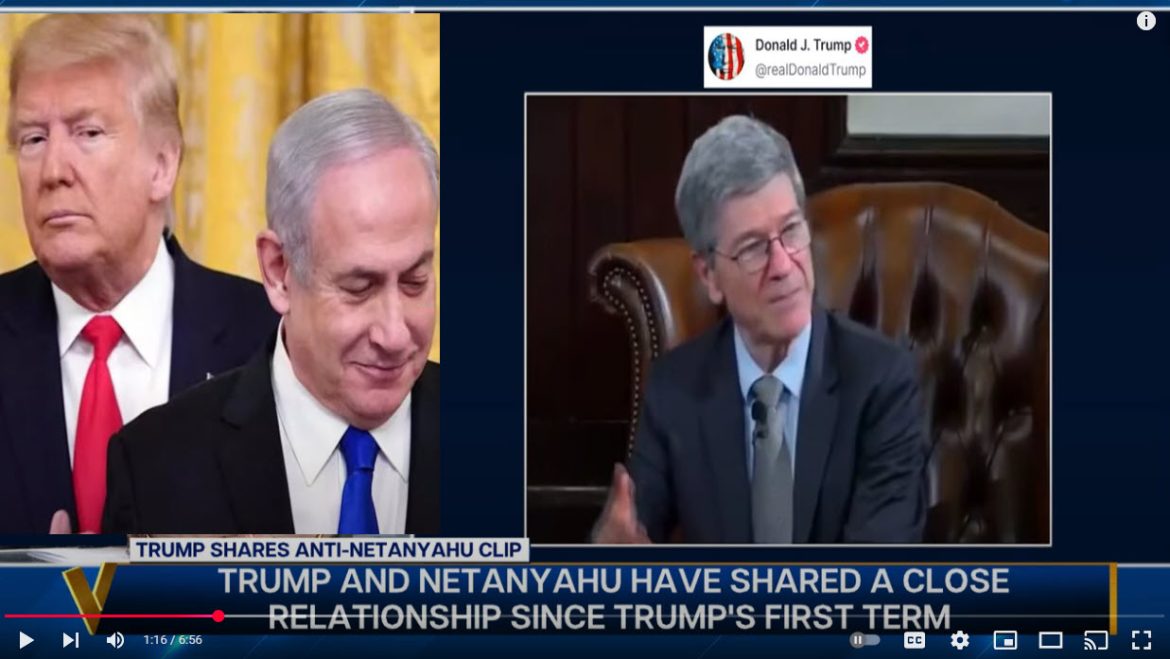U.S. President Donald Trump has reignited controversy by sharing an interview clip critical of Israeli Prime Minister Benjamin Netanyahu on his Truth Social platform. The video features U.S. professor Jeffrey Sachs, who accuses Netanyahu of contributing to America’s “endless wars” in West Asia and labels him a “deep, dark son of a b***h.” The move marks a surprising shift in tone from Trump, who has previously praised Netanyahu as a close ally during his administration.
The video, which has since gone viral, includes Sachs discussing Israel’s role in U.S. foreign policy, raising questions about Trump’s current stance toward Netanyahu. Trump’s re-posting of the clip has fueled speculation about a rift between the former allies, particularly as both remain prominent figures in their respective political spheres.
Netanyahu, widely regarded as a staunch supporter of Trump during his presidency, is notably absent from the ongoing discourse. However, his office announced the cancellation of a planned visit to the United States, intensifying speculation about the strain in their relationship. While no official reason was given for the cancellation, analysts believe it may be linked to the fallout from Trump’s recent actions.
The timing of the controversy is significant, as it comes amidst heightened tensions in Israel over judicial reforms and escalating violence in the region. Netanyahu is facing growing domestic opposition, and his relationship with the U.S., a key ally, remains critical to his political survival.
The clip shared by Trump originates from an interview featuring Sachs on Judge Andrew Napolitano’s “Judging Freedom” podcast. Sachs calls for a reevaluation of U.S. foreign policy in the Middle East and questions Netanyahu’s influence on American decision-making. Trump’s endorsement of the clip has drawn mixed reactions from his supporters, with some applauding his critique of entrenched alliances and others questioning his motives.
Diplomatic experts suggest that Trump’s actions could have broader implications for U.S.-Israel relations, particularly if Netanyahu interprets the move as a deliberate affront. The incident also highlights Trump’s unpredictable approach to international politics as he seeks to bolster his position ahead of the 2024 U.S. presidential election.
For Netanyahu, the controversy adds to an already challenging political landscape, with protests against his government’s policies intensifying and scrutiny over his leadership mounting. Observers are closely watching how the Israeli leader navigates this latest challenge and whether it signals a deeper shift in his relationship with influential figures like Trump.
As the fallout continues, questions linger about whether this incident represents a momentary conflict or a lasting fracture in one of the most notable political alliances of the past decade.



